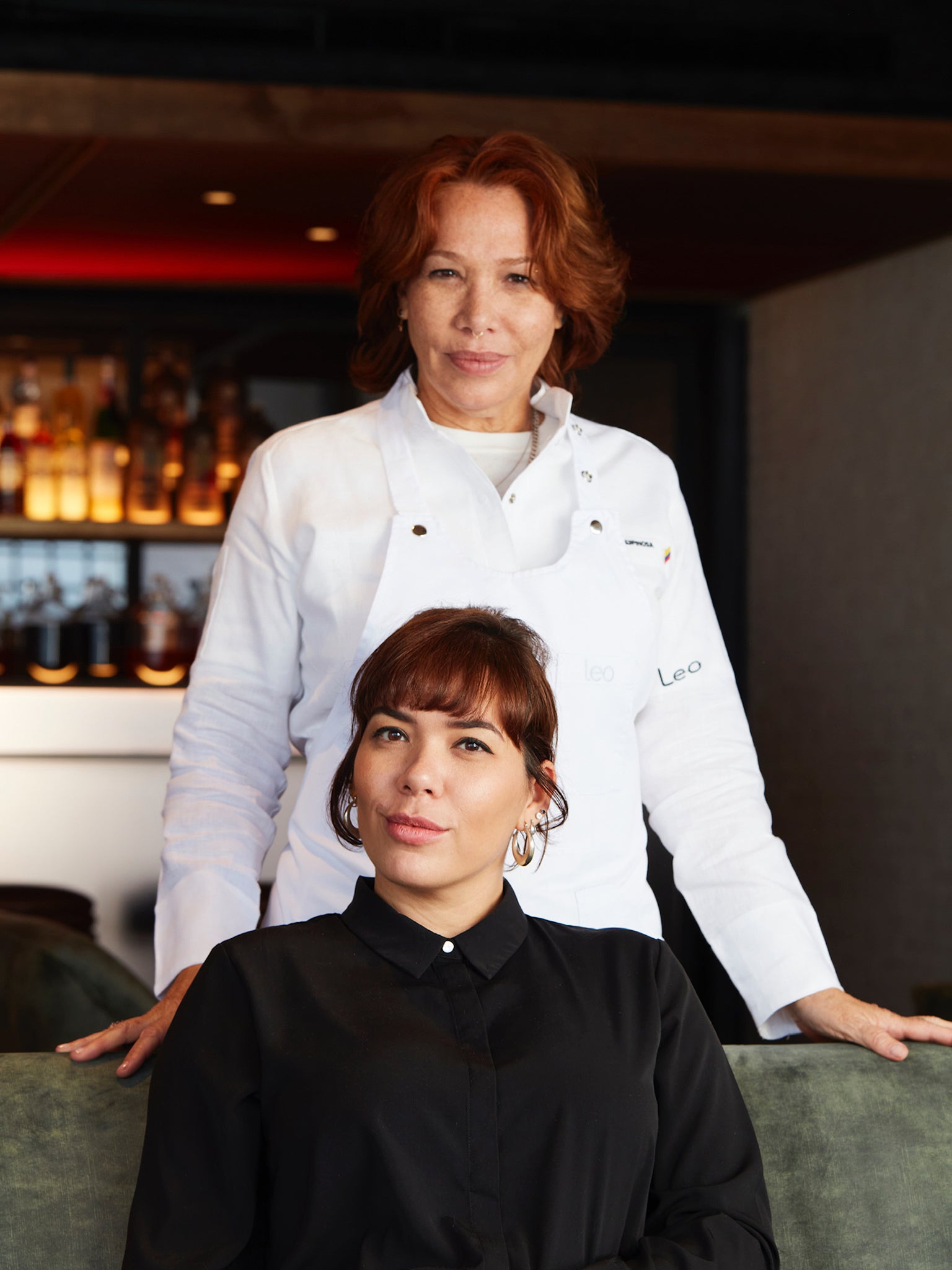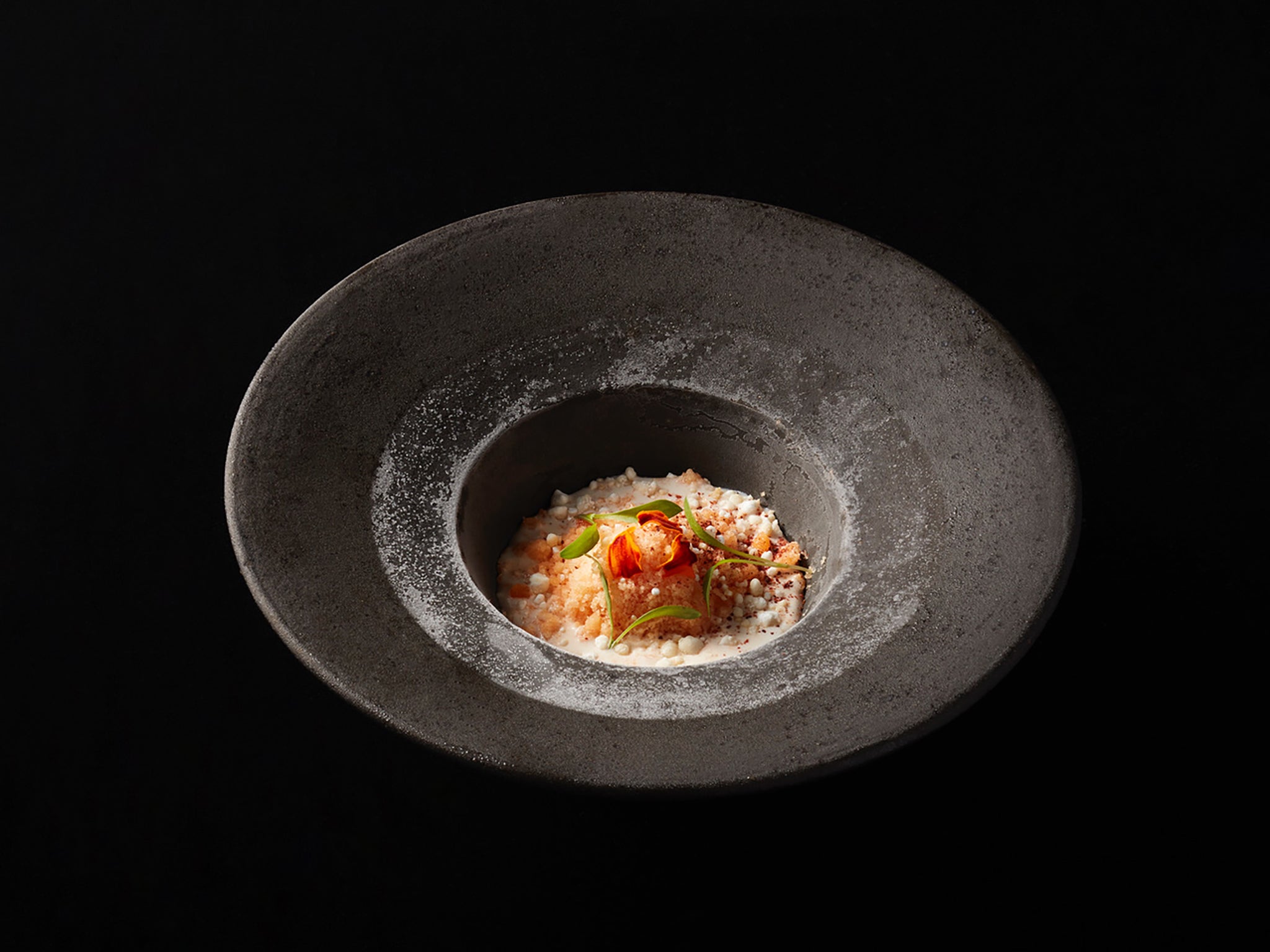Leo Espinosa: ‘The true path to artistic expression is cuisine’
Twenty-four years ago, Leo Espinosa was working in advertising. Now, she’s just been crowned the World’s Best Female Chef 2022. Anything is possible, she tells Sorrel Moseley-Williams

Your support helps us to tell the story
From reproductive rights to climate change to Big Tech, The Independent is on the ground when the story is developing. Whether it's investigating the financials of Elon Musk's pro-Trump PAC or producing our latest documentary, 'The A Word', which shines a light on the American women fighting for reproductive rights, we know how important it is to parse out the facts from the messaging.
At such a critical moment in US history, we need reporters on the ground. Your donation allows us to keep sending journalists to speak to both sides of the story.
The Independent is trusted by Americans across the entire political spectrum. And unlike many other quality news outlets, we choose not to lock Americans out of our reporting and analysis with paywalls. We believe quality journalism should be available to everyone, paid for by those who can afford it.
Your support makes all the difference.A trailblazing Colombian who entered the world of fine dining at the considerably ripe age of 35 has been anointed the World’s Best Female Chef 2022. Using gastronomy as a tool for social and economic development, preserving her country’s food culture while empowering its indigenous communities, Leonor Espinosa of Restaurante LEO proves that everything is possible if you create and nurture a virtuous circle.
Born and raised in Cartagena de Indias, the 16th-century jewel of a city in Colombia’s Caribbean, fine arts and economics graduate Leo, as she’s usually known, had a professional paradigm shift two decades ago when she began traversing a new path that would blend the worlds of art and haute cuisine. Diners use all their senses, eating with their eyes as well as with their nose and mouth at her renowned establishment in Bogotá, yet it is the chef’s socio-environmental philosophy known as Ciclo-Bioma, uniting the restaurant with her inspiring FunLeo foundation, that truly captures hearts, minds and palates.
This latest recognition is one of an armful in recent years. Restaurante LEO has ranked in both the World’s 50 Best and Latin America’s 50 Best lists many times, respectively 46 and 14 most recently; in 2020, Leo was chosen by her peers to take the Estrella Damm Chefs’ Choice Award, while in 2017, she was named Latin America’s Best Female Chef; that same year, Leo took home the prestigious Basque Culinary World Prize for the social and economic development work she undertakes at her NGO.
Fortunately for Colombian cuisine – and the indigenous communities her restaurant works with – she decided to apply her creativity elsewhere and called time on the nine-to-five schedule.

Leo says: “I’d worked in the advertising industry for 10 years and when I was 35, I realised, almost from one day to the next, that I no longer wanted to be a part of the corporate world.” Returning to the fine arts school that she’d studied at as a student in Cartagena, she began putting together contemporary exhibitions centred on installations and video art, which initiated her next calling into gastronomy, a profession she considers to be interdisciplinary.
“I realised that the true path to artistic expression was cuisine. That’s when it began emerging from other perspectives and, today, is arrived at through elements such as research, observation and experimentation – it’s a means of interpreting reality,” she adds.
Besides bringing her artistic training to the kitchen, Leo has also ventured into the world of the written word, having penned three books to date, including 2018’s Lo que cuenta el caldero (Tales from a Cooking Pot).
The chef has always had a keen sense of social responsibility, and not long after she opened the Bogotá-based restaurant in 2007, which she leads with Laura Hernández-Espinosa, her sommelier daughter, they set up FunLeo, the NGO that’s instrumental to LEO’s philosophy. Colombia is home to 87 indigenous communities and 51,330 species of flora and fauna, which makes it the second-most biodiverse country in the world, and the foundation is committed to sourcing indigenous ingredients. Leo’s dishes might include mojojoy larva from the Amazon, hormigas culonas (big-bottomed ants) from Santander, cacao and pirarucú (Arapaima gigas) river fish, and these ingredients are caught or cultivated by some of Colombia’s most vulnerable ethnic groups. Many live in extremely rural regions – mineral-rich territories often targeted by narco traffickers – and so the alliance with FunLeo empowers them. Leo calls cooking “a political act that embraces food production, and more so when climate change, deforestation, wrongful exploitation of natural resources, war and monopolies affect food sovereignty, security and local consumption.”
Take pirarurú. The chef doesn’t merely use the meaty fillet to sate appetites easily. Diners also savour the skin and tongue of the Amazonian river fish, Leo adamant that her team respects ingredients, using every last possible part in a bid to be as sustainable as possible in the kitchen. Usable leftovers are sent to her casual dining spot around the corner, El Casual, and if not, they are composted.
As for those big-bottomed ants, they can measure up to 2.5cm in length, are high in protein, low in fat and are considered an aphrodisiac. Leo often grinds them down into a smoky dust, though equally she might use them as a crunchy, whole topping. If diners’ minds are boggled with respect to all these “curious” Colombian ingredients, they receive a map that identifies each plant, fish or mammal and its origin, and should remember that they have been eaten by communities for generations.

In 2017, Leo’s work for her non-profit was recognised by the Basque Culinary World Prize, and the award money allowed FunLeo to further strengthen its ties with ethnic communities. One project in particular that benefited was Zotea in Coquí, an Afro-Colombian community in the Chocó region of the Colombian Pacific that was able to build a multi-faceted culinary centre that harbours a greenhouse, cooking workshop for visitors, and a restaurant that solely uses the produce cultivated by the community.
The past two years have kept Leo particularly busy. Though forced to temporarily shutter the restaurant due to the pandemic, the mother-and daughter-team was in the process of moving premises in May 2020 – but that never happened. The interrupted plans gave Leo the opportunity to rethink the immediate future, and the decision was to start over, again, with a purpose-built establishment. Knocking down a warehouse in the trendy Chapineros neighbourhood then building from scratch in such a short space of time was quite the challenge but it was worth it: today, Restaurante LEO houses two dining spaces under one single roof – La sala de Laura and La sala de Leo – allowing the women to complement each other, and each other’s talents.
Leo says: “I really took my time to think about the next move, meditating a lot – and that helped to define it. We still adhere to the Ciclo-Bioma philosophy but use the flavours differently. Laura’s dishes, which I conceive, are about every-day dining, while I remain emphatic about never conforming to simply creating a dish and leaving it at that, always while maintaining our hallmark of presenting an experience for diners.”
The pandemic obviously created hurdles when it came to continuing FunLeo’s work in person, but it is very nearly business as usual now. Leo says: “Fortunately the pandemic didn’t have too negative an impact at Zotea, for example, the community’s ancestral herb knowledge means their health wasn’t that affected – and we have started interacting more regularly once again.” While her efforts with her non-profit have been recognised, it’s her cooking that was most recently acclaimed and awarded; we can’t wait to see what else the world’s best female chef has in store for diners.
Join our commenting forum
Join thought-provoking conversations, follow other Independent readers and see their replies
Comments